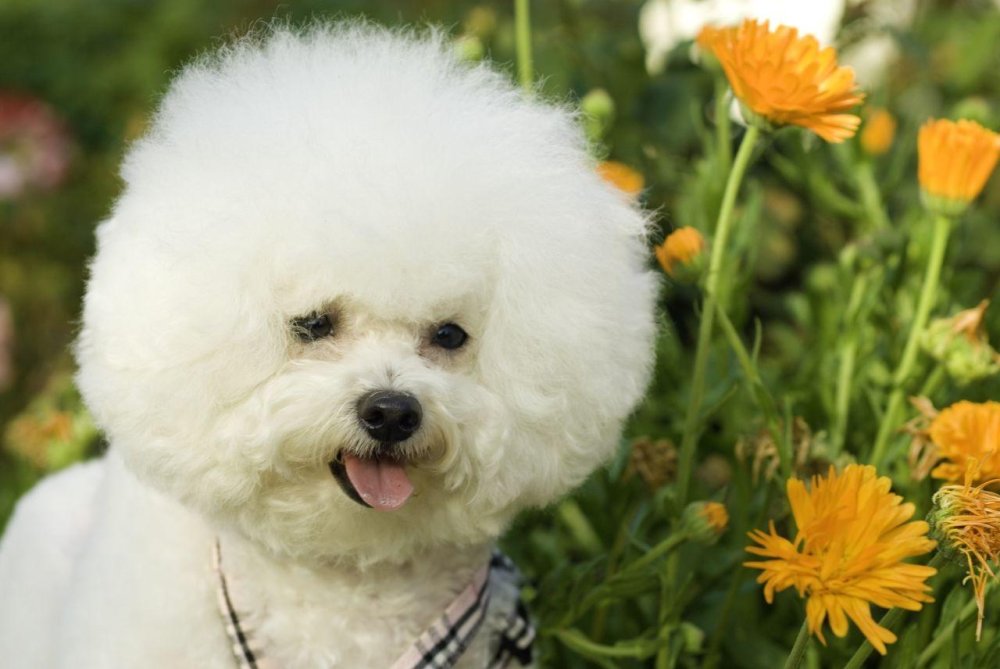- Breed Category: Companion dog
- Country of Origin: France/Belgium
- Average Height: 23-30 cm (9-12 inches)
- Average Weight: 3-5 kg (6.6-11 lbs)
- Average Life Span: 12-15 years
- Grooming Requirements: High; regular brushing and trimming
- Exercise Requirements: Moderate; daily walks and playtime
- Coat Type: Curly and dense
- Coat Color Variations: White
- Shedding Level: Low
- Ear Type: Drop ears
- Tail Type: Curled over back
- Temperament: Friendly, playful, affectionate
- Intelligence Level: High
- Barking Tendency: Moderate
- Compatibility with Children: Excellent
- Compatibility with Other Pets: Good
- Training Ease: Easy; eager to please
- Common Health Issues: Allergies, dental issues, patellar luxation
- Dietary Needs: Balanced diet; watch for obesity
- Energy Level: High
- Drooling Tendency: Low
- Sensitivity to Weather: Sensitive to heat
- Overall Maintenance Level: High
- Original Purpose: Companion and lap dog
- Year of Recognition by Kennel Clubs: 1973 (AKC)
- Apartment Friendly: Yes
- Best Suited For: Families, singles, seniors
- Cost of Ownership: Moderate to high
- Unique Traits: Hypoallergenic coat
- Popularity Rank: Popular
The Bichon Frise is a delightful breed, known for its cheerful disposition and fluffy white coat. These small dogs are often described as having a “merry” temperament, making them wonderful companions. Originating from the Mediterranean, the Bichon Frise has a rich history, once being a favourite among European nobility. Their charm and intelligence have made them popular pets worldwide.
“The Bichon Frise is not just a pet; it’s a bundle of joy wrapped in a cloud of fur,”
– Renowned dog trainer, Jane Smith
This article aims to provide a comprehensive look at the Bichon Frise, exploring their unique characteristics, historical background, and essential care tips to ensure they thrive in your home.
History and Origin
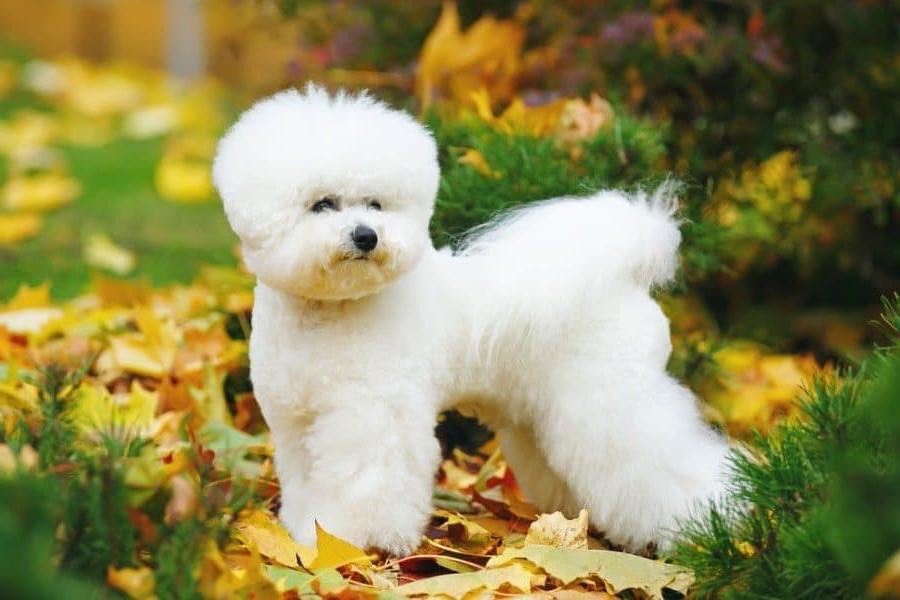
Early Development of the Breed
The Bichon Frise traces its roots back to the Mediterranean, where it was developed from the Barbet or Water Spaniel. These little dogs were initially used as sailing companions, thanks to their small size and cheerful nature. Over time, they evolved into the charming breed we know today, with their distinctive fluffy coats and playful personalities.
Role in European Nobility and Companionship
During the Renaissance, the Bichon Frise became a favourite among European nobility. Their endearing looks and friendly demeanour made them perfect companions for the elite. They were often seen in the courts of France, Spain, and Italy, where they were pampered and adored. This period cemented their status as a symbol of luxury and companionship.
Key Historical Figures and Events
One notable figure in the breed’s history is King Henry III of France, who was so enamoured with his Bichons that he carried them in a basket around his neck. The breed’s popularity waned during the French Revolution, but they found a new role as street performers, showcasing their intelligence and agility. This adaptability ensured their survival and eventual resurgence as beloved pets.
Physical Characteristics

Appearance
The Bichon Frise is a small dog, typically weighing between 3 to 5 kilograms and standing about 23 to 30 centimetres tall. Their most striking feature is their fluffy, white coat, which gives them a cloud-like appearance. This coat is often pure white, but some Bichons may have cream or apricot shadings around the ears or on the body. Their dark, round eyes and black noses stand out against their white fur, giving them an expressive and endearing look.
Unique Physical Traits
One of the standout features of the Bichon Frise is their hypoallergenic coat. This makes them a great choice for people with allergies. Their coat is double-layered, with a soft undercoat and a curly outer coat that requires regular grooming to prevent matting. Despite their luxurious fur, they shed very little, which is a bonus for keeping your home tidy. Their compact size and sturdy build make them adaptable to various living environments, from apartments to larger homes.
Temperament and Behaviour

Typical Personality Traits
The Bichon Frise is known for its affectionate and playful nature. These dogs thrive on human interaction and are incredibly sociable, often forming strong bonds with their families. Their cheerful disposition makes them a joy to be around, and they have a knack for bringing smiles to those they meet. Bichons are also quite intelligent, which makes them easy to train and eager to please.
Suitability as a Family Pet and Companion
As a family pet, the Bichon Frise is hard to beat. Their gentle and friendly nature makes them ideal companions for people of all ages. They adapt well to different living situations, whether it’s a bustling family home or a quieter environment. Their hypoallergenic coat is an added bonus for families with allergy concerns.
Interaction with Children and Other Animals
Bichons are generally great with children, displaying patience and playfulness that kids adore. They enjoy being part of family activities and are known to be gentle with little ones. When it comes to other animals, Bichons are usually friendly and sociable, getting along well with other dogs and even cats, provided they are introduced properly.
Training and Exercise Needs
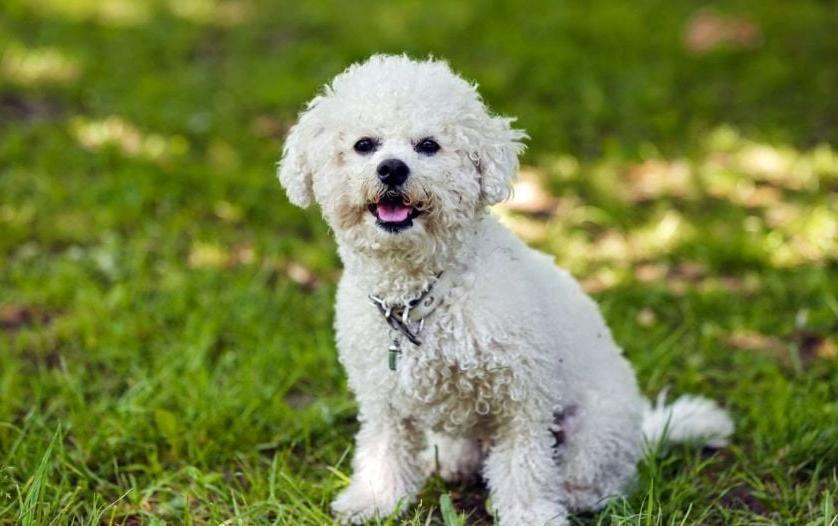
Importance of Early Training and Socialisation
Getting your Bichon Frise started with training and socialisation early on is crucial. These little dogs are naturally sociable, but early exposure to different environments, people, and other animals helps them grow into well-rounded companions. It sets the foundation for good behaviour and helps prevent any unwanted habits from developing.
Recommended Training Techniques
When it comes to training, positive reinforcement is the way to go. Bichons respond well to treats, praise, and play as rewards. Keep training sessions short and fun to maintain their interest. Consistency is key, so make sure everyone in the household is on the same page with commands and rules.
Daily Exercise Requirements and Activities They Enjoy
Despite their small size, Bichons have a good amount of energy. They need daily exercise to keep them happy and healthy. A couple of short walks each day, combined with some playtime, usually does the trick. They love games like fetch and enjoy interactive toys that challenge their minds. Regular exercise not only keeps them fit but also helps prevent boredom, which can lead to mischief.
Health and Lifespan

Common Health Issues
Bichon Frises are generally healthy, but like all breeds, they’re prone to certain health issues. Some common concerns include allergies, dental problems, and patellar luxation. Regular vet check-ups can help catch these early. It’s also important to watch for signs of bladder infections, which can be common in this breed.
Average Lifespan and Tips for Keeping Them Healthy
With proper care, a Bichon Frise can live between 12 to 15 years. To keep them healthy, ensure they have a balanced diet and regular exercise. Their fluffy coat needs regular grooming to prevent matting and skin issues. Dental hygiene is crucial, so brush their teeth regularly to avoid dental disease.
Preventative Care Recommendations
- Schedule regular vet visits for vaccinations and health screenings.
- Maintain a consistent grooming routine to keep their coat and skin healthy.
- Provide a balanced diet and monitor their weight to prevent obesity.
- Engage them in daily exercise to keep them physically and mentally stimulated.
- Brush their teeth regularly to prevent dental issues.
Grooming and Maintenance

Coat Care and Grooming Routines
The Bichon Frise’s fluffy coat is one of its most charming features, but it does require regular attention. A consistent grooming routine is essential to keep their coat looking its best. Aim to brush your Bichon at least a few times a week to prevent tangles and matting. Regular brushing also helps distribute natural oils, keeping their skin healthy.
Professional grooming every four to six weeks is recommended to maintain their coat’s shape and cleanliness. This includes trimming around the eyes and paws, as well as a thorough bath and blow-dry.
Shedding and Seasonal Grooming Tips
One of the perks of having a Bichon Frise is their minimal shedding. However, their coat can still trap loose hair, so regular grooming is key. During seasonal changes, you might notice a bit more shedding, so increase brushing sessions to manage this.
In warmer months, consider a shorter trim to keep your Bichon comfortable. Always ensure their coat is clean and free of debris, especially after outdoor adventures. This not only keeps them looking great but also prevents skin irritations.
Diet and Nutrition
Nutritional Needs for Optimal Health
Feeding your Bichon Frise the right diet is crucial for their health and happiness. These little dogs need a balanced diet rich in proteins, healthy fats, and carbohydrates. Proteins support muscle development, while fats provide energy and help maintain a shiny coat. Carbohydrates are essential for energy, but they should come from quality sources like vegetables and grains.
Foods to Include and Avoid
Include lean meats like chicken or turkey, along with fish for omega-3 fatty acids. Vegetables such as carrots and peas are great for added nutrients. Avoid foods high in fillers, artificial preservatives, and excessive fats. Chocolate, onions, and grapes are toxic to dogs and should be kept out of reach.
Feeding Schedules and Portion Recommendations
Establishing a regular feeding schedule helps maintain your Bichon’s digestive health. Typically, two meals a day are sufficient for adult Bichons. Puppies may require more frequent meals. Portion sizes depend on their age, weight, and activity level, so consult your vet for personalised advice. Always ensure fresh water is available.
Fun Facts and Trivia
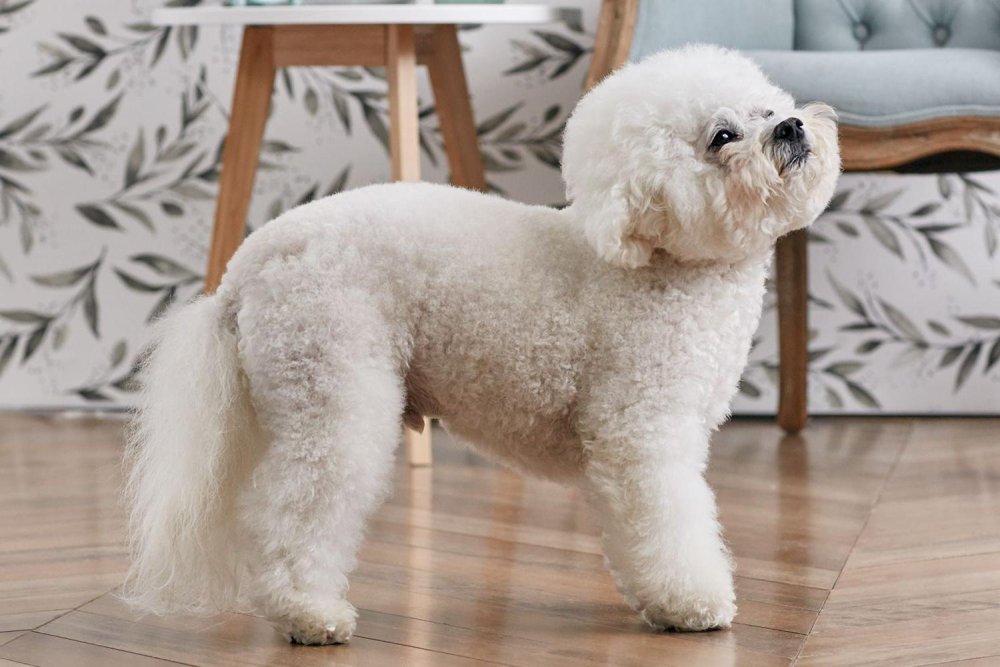
Interesting Tidbits About the Breed
The Bichon Frise is not just a pretty face; these dogs have some fascinating traits. Did you know they were once used as barter items by sailors? Their cheerful nature made them popular companions on long voyages. Another fun fact is their name, “Bichon Frise,” which translates to “curly lap dog” in French, perfectly describing their fluffy appearance and affectionate nature.
Famous Bichon Frises in Media or History
Bichon Frises have made their mark in the world of entertainment and history. One of the most famous Bichons is “Bijou,” who starred in the popular TV show “Mad About You.” Their charm isn’t limited to the screen; historical figures like King Henry III of France adored them, often seen with his beloved Bichons in tow. These dogs have a knack for capturing hearts, whether in royal courts or on television sets.
Final Thoughts
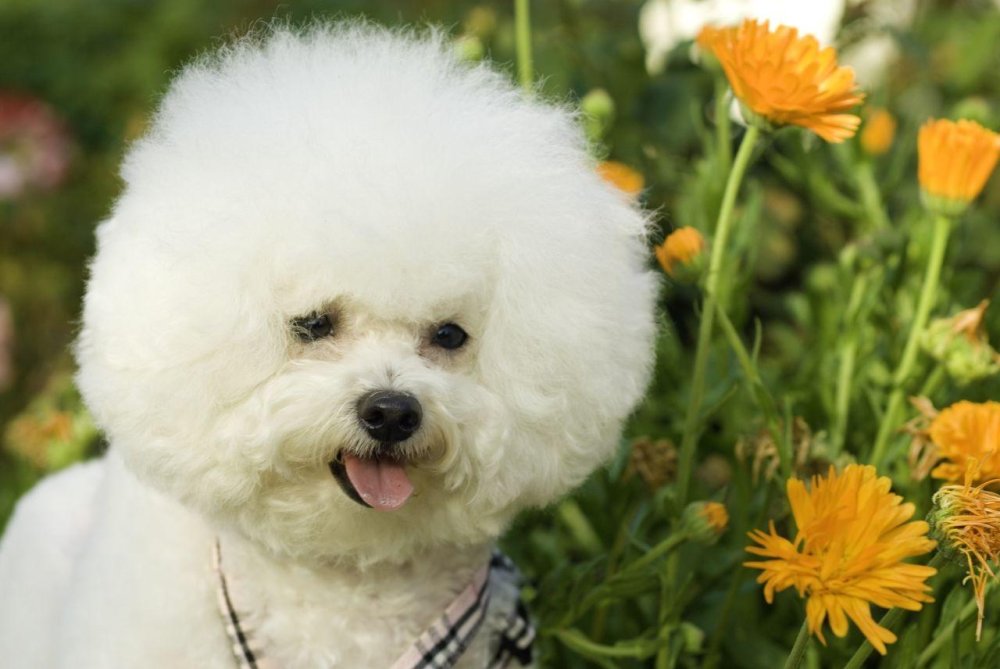
The Bichon Frise is a charming and versatile companion. With their cheerful disposition and hypoallergenic coat, they make excellent pets for a variety of households. While their grooming and exercise needs require commitment, the joy and affection they bring are well worth the effort. Embracing a Bichon Frise means welcoming a lively and loving friend into your life. Consider adopting one of these delightful dogs and experience the happiness they can bring to your home.
